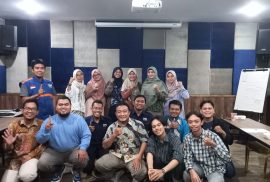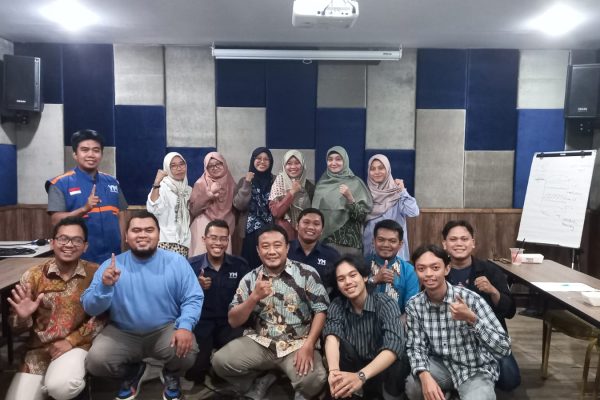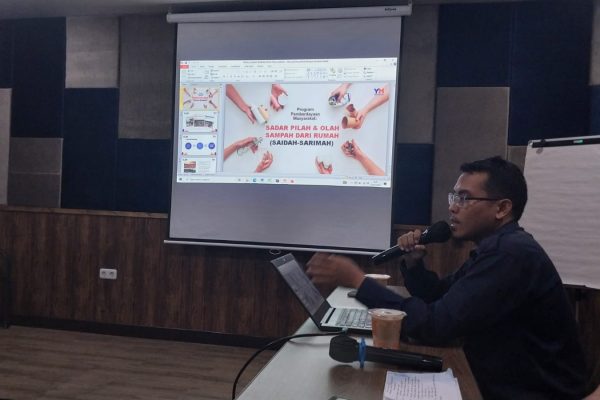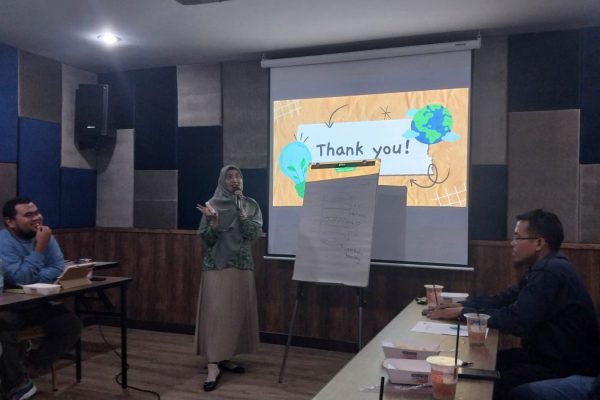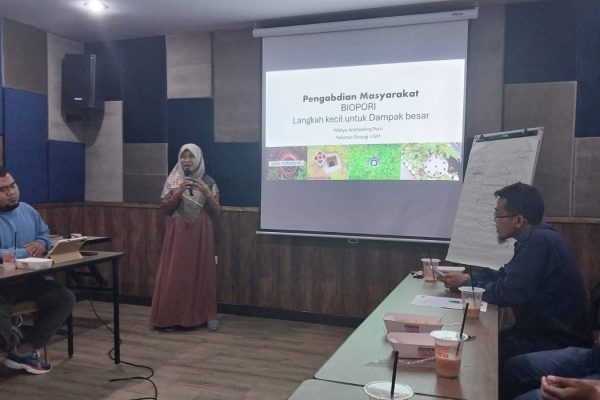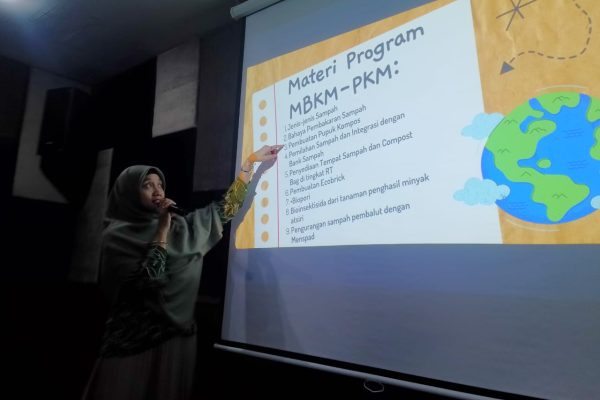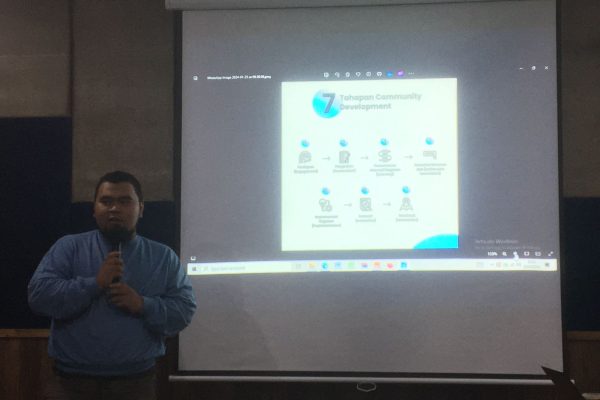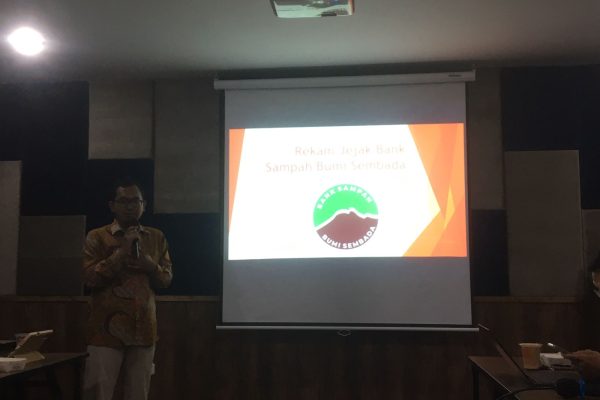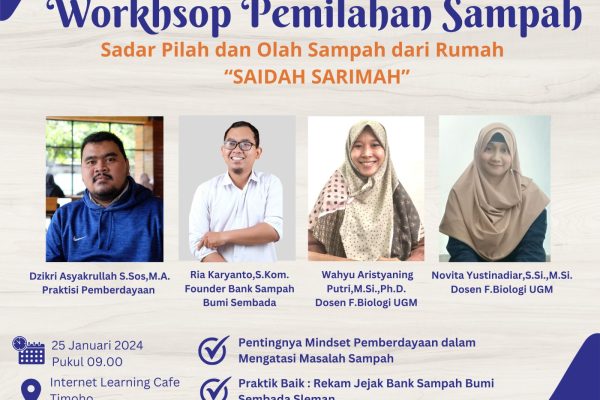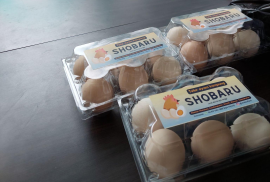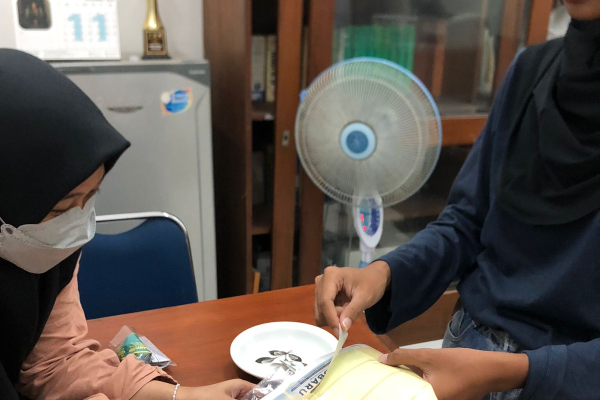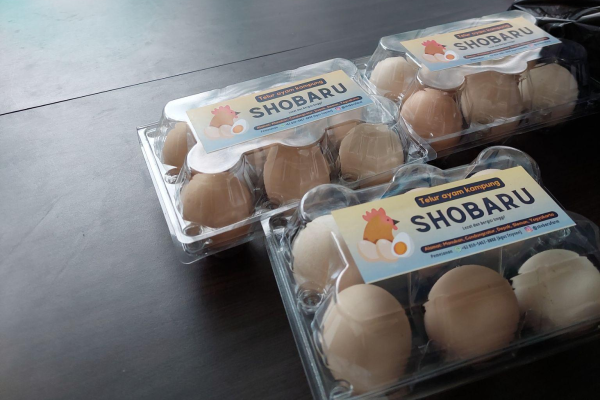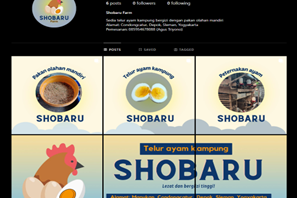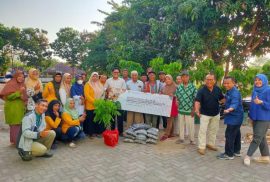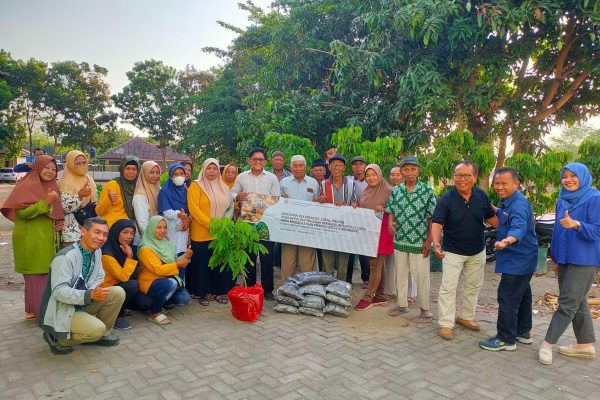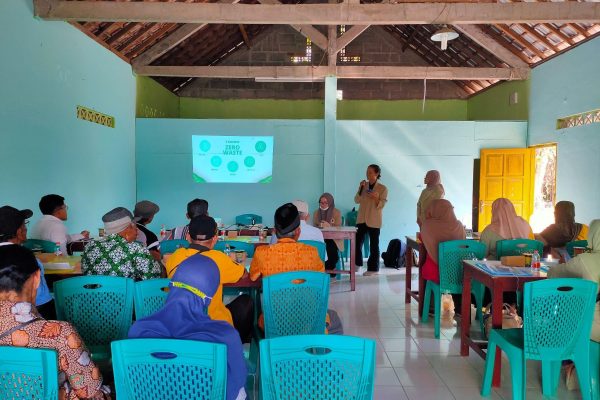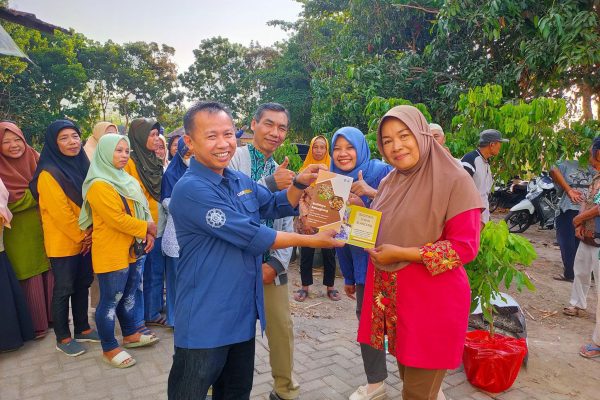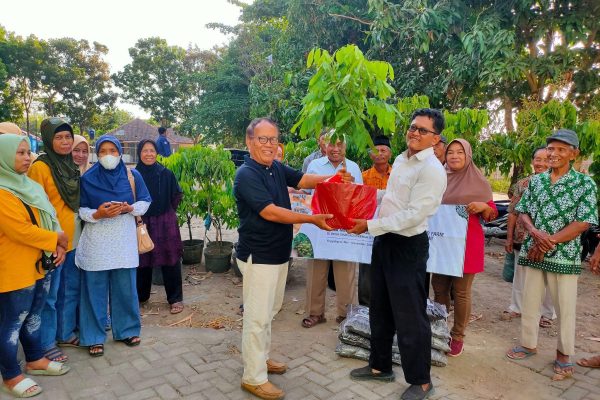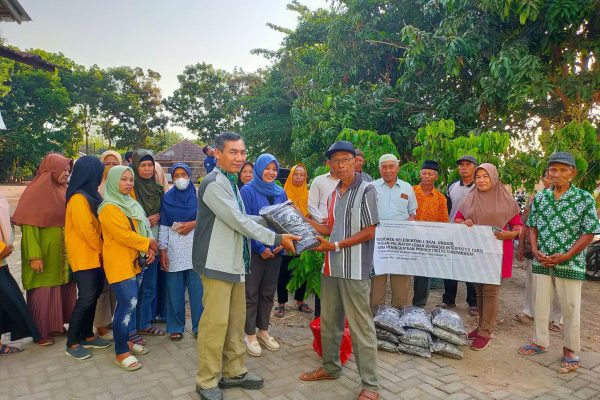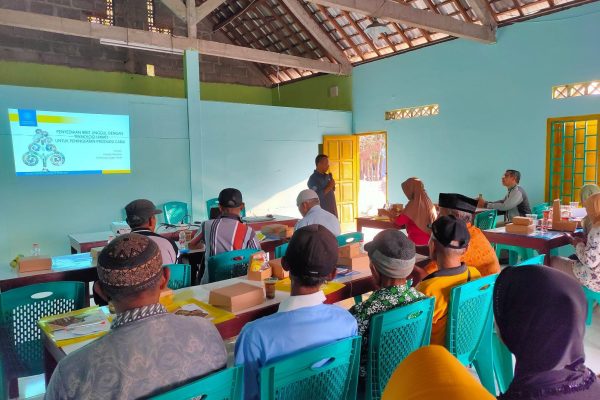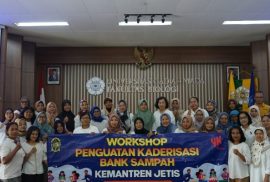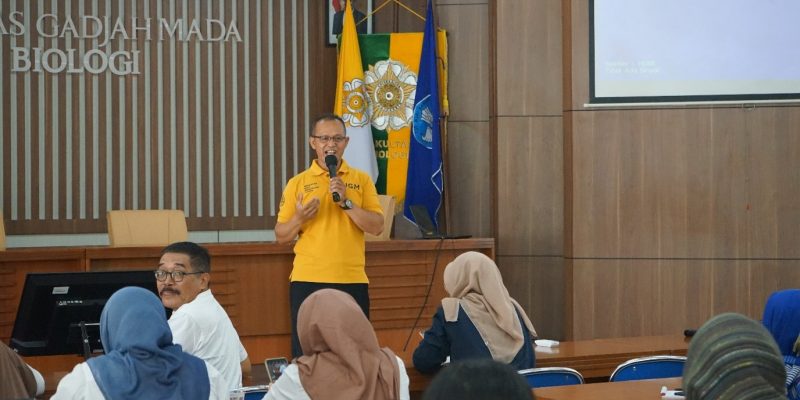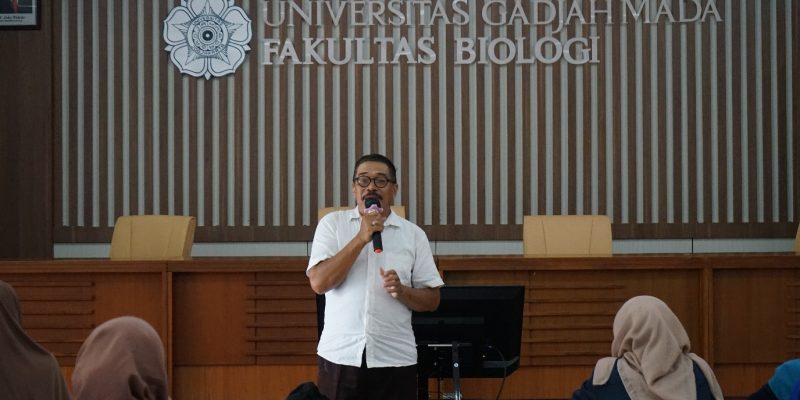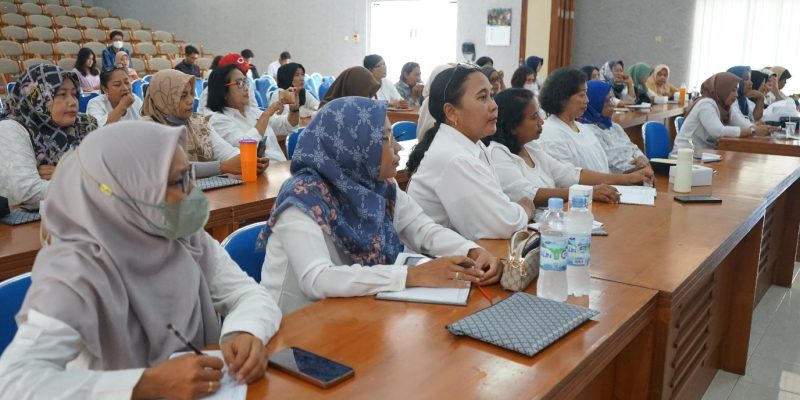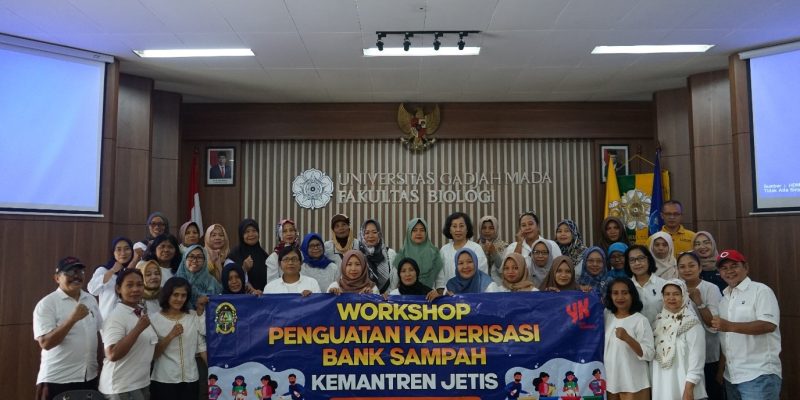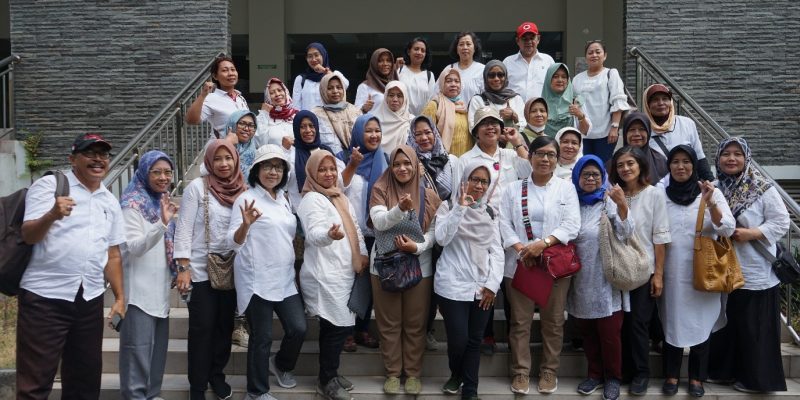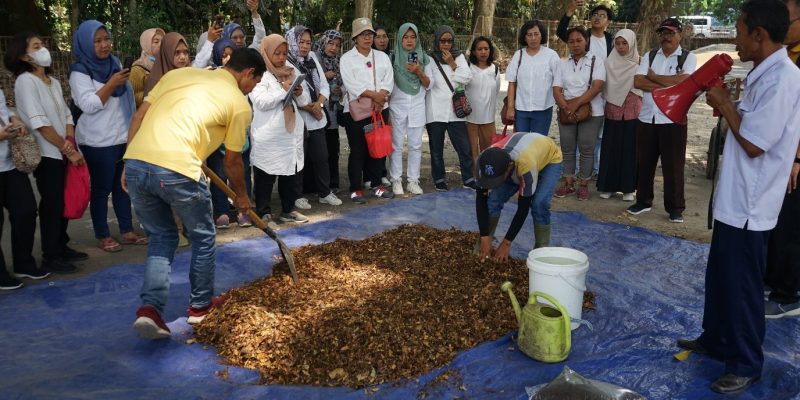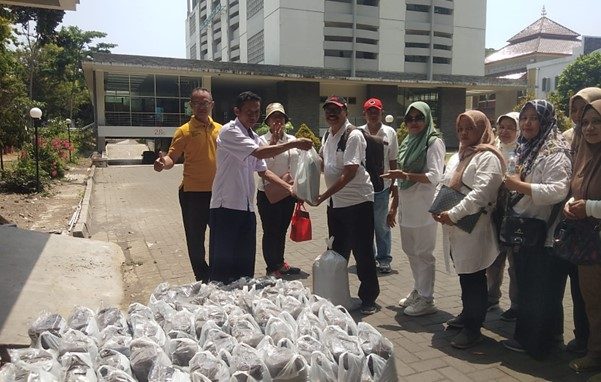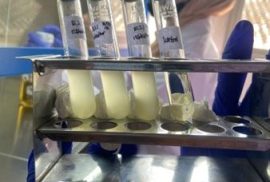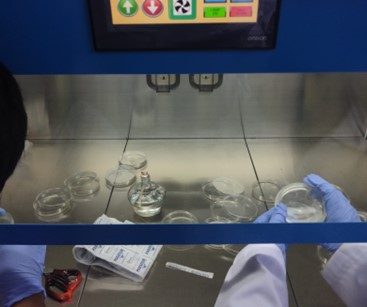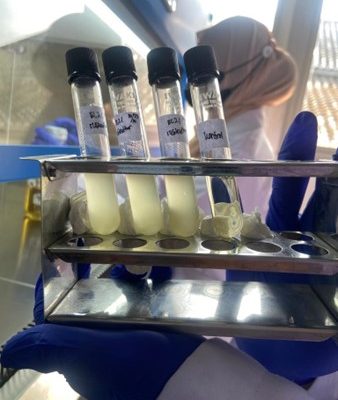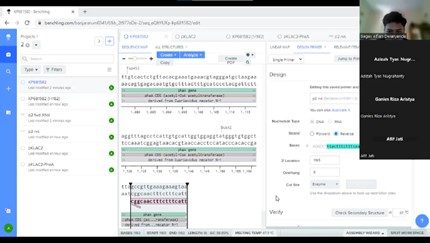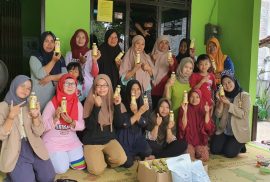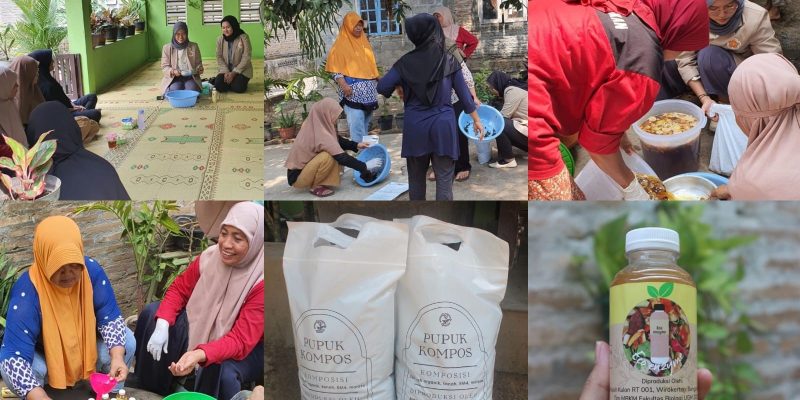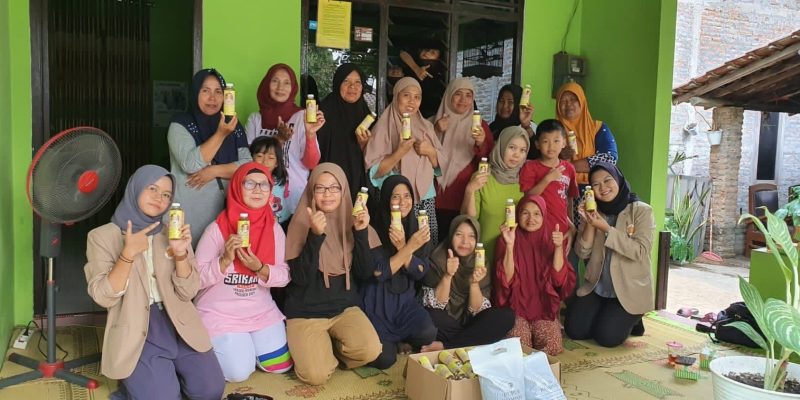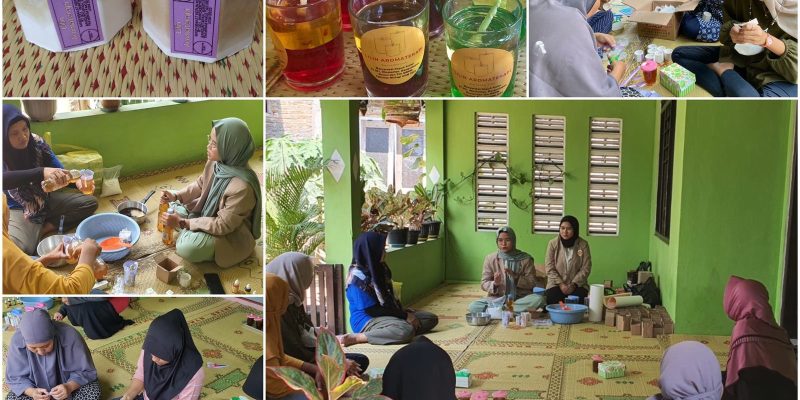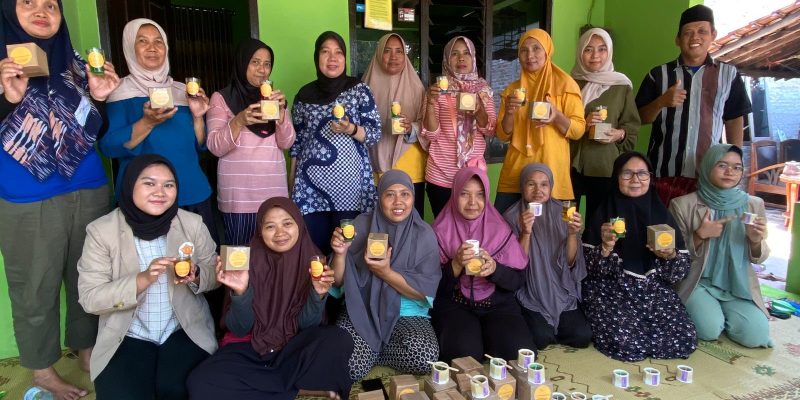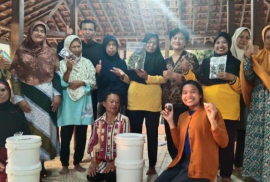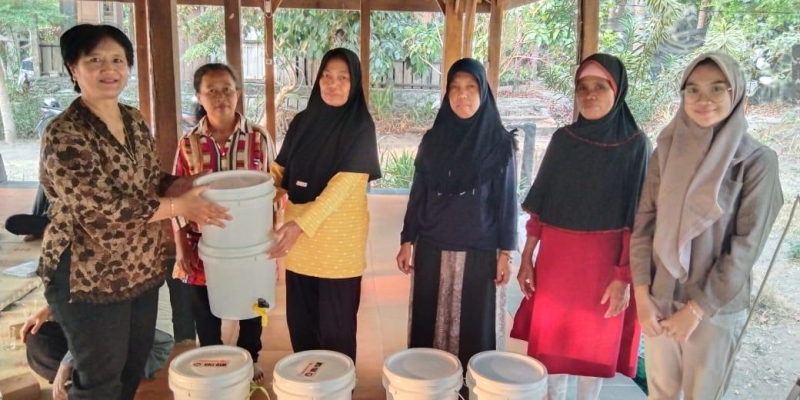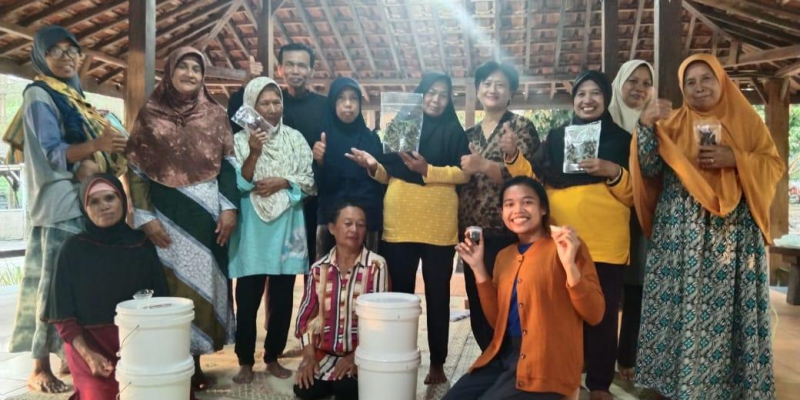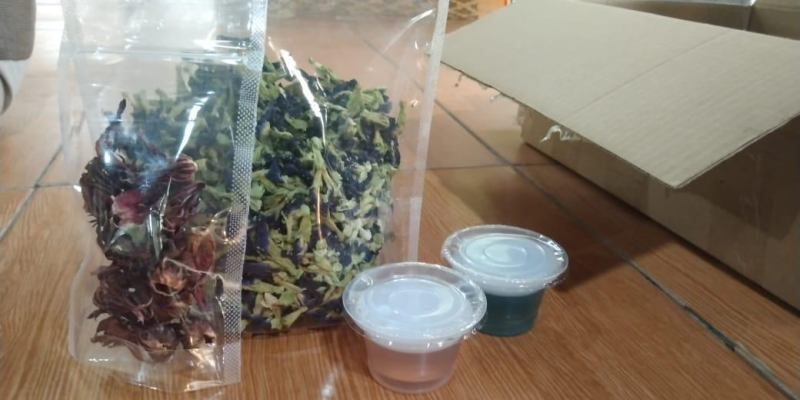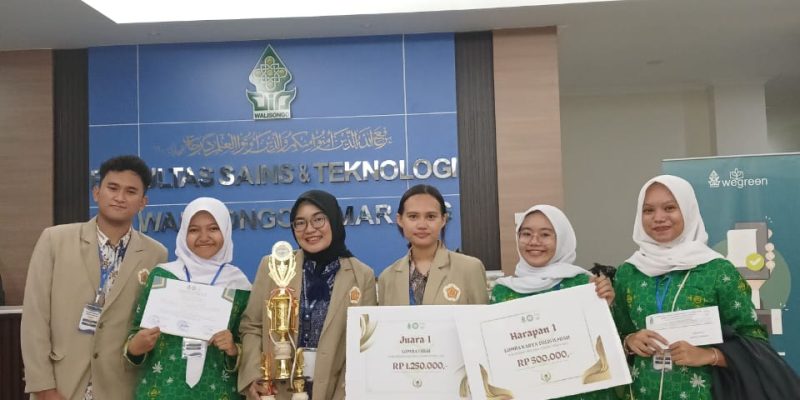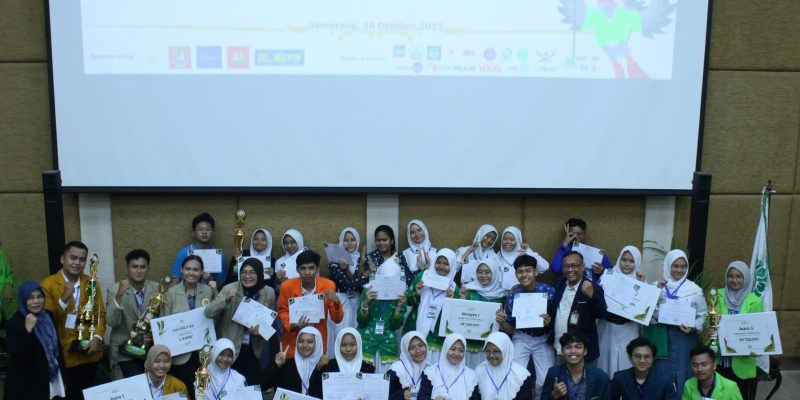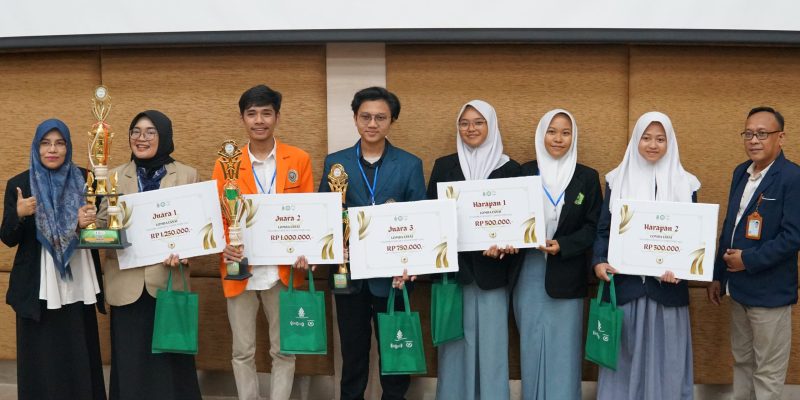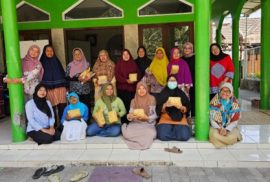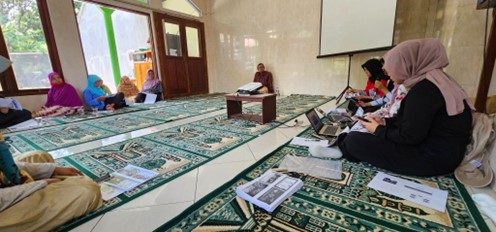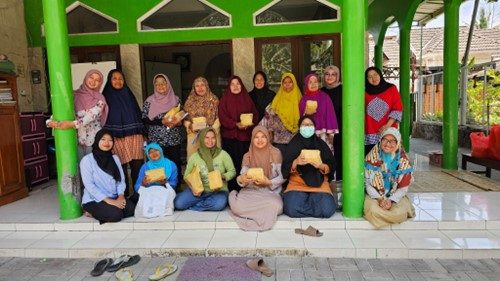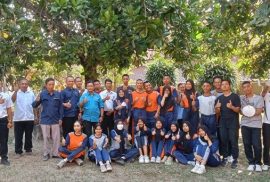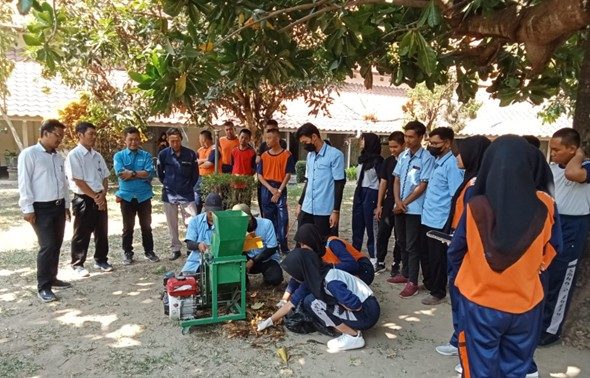SDG 15 : Advance Life On Land
The team of Pengabdian Kepada Masyarakat – Merdeka Belajar Kampus Merdeka (PkM-MBKM) Faculty of Biology UGM 2023 that chaired by Rina Sri Kasiamdari, Ph.D. and involved two students, namely Galuh Kirana Mahadewi and Laila Uswatun Chasanah, carried out again a series of Community Service activities in Kepuh Kulon RT 001, Wirokerten, Banguntapan, Bantul. This activity is a continuity of the PkM-MBKM activities that have been carried out previously from February to June 2023.
The first activity of this PkM MBKM phase II was held on Sunday, October 8th 2023 from 09.00 to 11.00 WIB at the house of the neighborhood head of Kepuh Kulon RT 001, Mr. Zamzuri, and attended by 18 people of Kepuh Kulon RT 001. The activity on that day was packaging the compost and eco enzymes that had been made previously. First of all, Galuh and Laila gave a short explanation and demonstration about how to harvest and package the compost and eco enzyme. The compost was harvested by dried it for a while. After that, the compost could be packaged in a customized plastic ziplock. Unlike the compost, eco enzymes must be filtered between the fruits that are used and the water and then packaged in 250 mL bottles as much as 60 bottles. The compost that have been made is used for plant fertilization, while the eco enzyme is used for washing dishes, cleaning floors, repelling pests, cleaning vegetables and fruit from pests, and cleaning glass or glass surfaces. The compost and eco enzymes that are already packed and labeled are given to the Head of Wirokerten village and the Head of Hamlet. Hopefully, the skills of the women residents of Kepuh Kulon RT 001 in making compost and eco enzymes can become a reference in managing daily household waste, so that they can reduce the accumulation of waste and can make household waste more useful.
The second activity was about utilising used cooking oil (UCO) that become household waste into aromatherapy candles. It was held on Sunday, October 29th 2023 from 09.00 to 12.30 WIB at the house of the neighborhood head of RT 001 Kepuh Kulon, Mr. Zamzuri, and attended by 18 people of Kepuh Kulon RT 001. In this activity, the used cooking oil was made into solid aromatherapy candles and liquid aromatherapy candles. Tools and materials that used for making solid aromatherapy candles were used candle wick, wood holder, tea filter, plastic basin, pan, measuring cup, stove, cement pot, saucepan, cutting board, knife, spoon, used cooking oil, stearic acid, crayon, and essential oil, whereas the tools and materials that used for making liquid aromatherapy candles were glass cup, tissue paper, the cover of pudding cup, five different food colouring, water, used cooking oil, and essential oil. During the practice of making aromatherapy candles, we produced 100 solid aromatherapy candles and 25 liquid aromatherapy candles. All of them were distributed and could be used by the residents of Kepuh Kulon RT 001. Hopefully, the utilisation of UCO into aromatherapy candle could be one of the solution for reducing oil waste that can cause an environmental pollution and also could be a micro/small/medium enterprises (MSMEs) business idea for Kepuh Kulon RT 001 residents. The aromatherapy candles also distributed to the Head of the Hamlet, and the Head of Wirokerten Village. It is hoped that this PkM-MBKM program can provide new knowledge for Kepuh Kulon RT 001 residents in processing and utilizing household waste into more useful products.
On Sunday, October 15th, 2023, the team of Merdeka Belajar Kampus Merdeka-Pengabdian kepada Masyarakat (MBKM-PkM) 2023 Faculty of Biology, Universitas Gadjah Mada, conducted another socialization activity for the residents in Pajangan, Wedomartani, Ngemplak, Sleman, Yogyakarta, regarding the production of liquid organic fertilizer (LOF) and eco-enzyme. This socialization was organized to encourage the community to manage organic waste into something beneficial, such as liquid organic fertilizer (LOF) and eco-enzyme. The speakers for this socialization were the MBKM-PkM 2023 team, consisting of five undergraduate students of Faculty of Biology, Unviersitas Gadjah Mada, class of 2020, they were Arba’ Ramadhani Artik, Arneta Yuvita, Ester Dewanti Yovita Wardani, Fadiah Sri Rahayu, and Zidni Meirizka Utami, under supervision Dr. Ardaning Nuriliani, S.Si., M.Kes. and the partner mentor Ms. Nurini Aru Sudarsi. The MBKM-PkM 2023 team conducted the socialization with the theme “Caring for the Earth Starts from Our Kitchen.” This theme included two main topics: liquid organic fertilizer and eco-enzyme. The first topic covered the importance of macro and micro nutrients for plants, the definition of organic and inorganic fertilizers, the differences between organic and inorganic fertilizers (chemical), the advantages and disadvantages of organic and inorganic fertilizers, the production process of liquid organic fertilizer, as well as its application. The second topic explained the concept of eco-enzyme, its advantages and disadvantages, its benefits, the production process of Eco-enzyme, as well as its application.
Effective management of organic waste is crucial at present, given the issues related to the limited space for waste disposal at the Piyungan Final Disposal Site in the Special Region of Yogyakarta. Producing liquid organic fertilizer (LOF) and eco-enzyme is one way to manage organic waste such as food scraps, vegetable waste, fruit waste, and leaves, turning them into something beneficial for the environment. Liquid organic fertilizer (LOF) can be used to nurture plants without worrying about chemical effects on them. Meanwhile, eco-enzyme can serve not only as a fertilizer component but also as a detergent or cleanser and pest control for plants. The production of LOF and Eco-enzyme doesn’t require significant costs; it mainly relies on organic waste from the kitchen, water, molasses solution (brown sugar, palm sugar, coconut sugar), and EM4 solution.
This socialization received a positive response and enthusiasm from the residents of Pajangan Hamlet who actively participated in the discussion sessions with the speakers. It is hoped that the socialization by the MBKM-PkM 2023 team will raise awareness and engagement, particularly among the residents of Pajangan Hamlet, in environmentally friendly practices by managing kitchen and organic waste and turning them into something useful for the environment. (SDGs 3).

